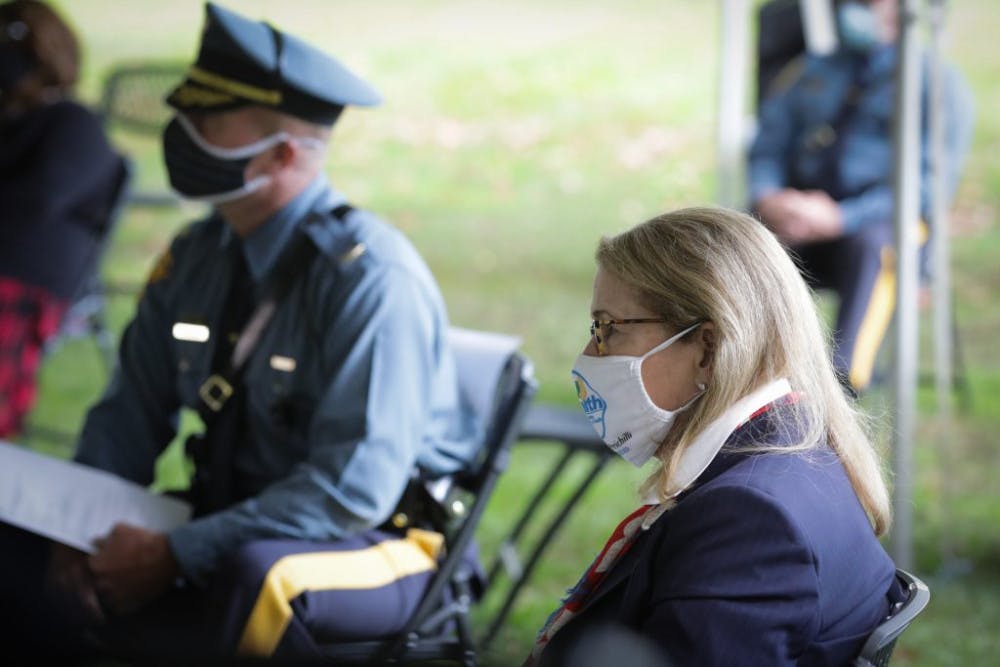New Jersey reported 1,301 new cases of the coronavirus on Thursday, the highest number of daily cases since May 29, as public health officials are bracing for a potentially dire winter.
"We are anticipating a second wave and we are preparing based on lessons learned from our prior experiences,” State Commissioner of Health Judith Persichilli said at a press conference on Thursday, appearing alongside New Jersey Gov. Phil Murphy. “If individuals do not adhere to social distancing, masking guidelines, washing your hands, staying home if you're sick, this wave has the potential to become a surge.”
According to the state’s coronavirus dashboard, the rate of transmission for the virus clocked in at 1.22 – above the state’s key threshold of one – indicating that the virus’ spread is continuing to grow in New Jersey.
Persichilli said that the state has prepared stockpiles of personal protective equipment, ventilators and the antiviral treatment Remdesivir in preparation for the potential second wave, which public health officials have warned of for months.
The commissioner warned that the biggest challenge New Jersey will face in the coming months will likely be staffing, saying if health care workers become ill as they did in March and April, New Jersey will likely be unable to import healthcare workers as it did before because other states will be engaged in the fight against the virus simultaneously.

Murphy noted that the statewide positivity rate on Sunday was at 3.69%, adding that New Jersey has one of the most robust testing capacities in the country and calling the most recent uptick in numbers “sobering.”
Currently, the state is monitoring several coronavirus hotspots in Ocean County, specifically in Lakewood which accounted for over 70% of the county’s 285 new coronavirus cases on Thursday.
Persichilli also said that New Jersey was monitoring outbreaks among college-aged individuals in Monmouth and Middlesex Counties – home to Monmouth University and Rutgers University. She said that state-wide, there have been “increasing signs of community spread” predominantly among adolescents and young adults.
“Any communal living presents an at-risk situation if masking and social physical distancing is not adhered to,” Persichilli said. “To date, cases don't appear to be associated with on-campus instruction, but rather, are associated with informal gatherings and socializing.”
Seton Hall has also seen a recent uptick in cases, reporting five cases of the coronavirus in the last two weeks alone.
Testing at the University has since ramped up in the last week, with 294 new tests being reported on Seton Hall’s Health Intervention and Communication Team dashboard since last Thursday. In the preceding week, the University only reported 97 tests.
The numbers come as the University announced that it would begin conducting random surveillance testing on 5% of its resident student population, which started on Sept. 28.
“What we're seeing overall is spread it in many different places, some associated with colleges and other places,” Dr. Edward Lifshitz, medical director of the New Jersey Department of Health’s Communicable Disease Service, said of the uptick.
Murphy added that on Tuesday he met with the White House Coronavirus Taskforce Response Coordinator Dr. Deborah Birx, who called the spread of the virus on college campuses “a version” of wider community spread.
“She said we need a surge in due diligence to prevent a surge in COVID-19,” Murphy said. “So let's have that surge in due diligence, especially now as the weather turns cooler and more activities begin to move indoors where we know this virus is at its worst.”
Nicholas Kerr can be reached at nicholas.kerr@student.shu.edu. Find him on Twitter @nickdotkerr.





